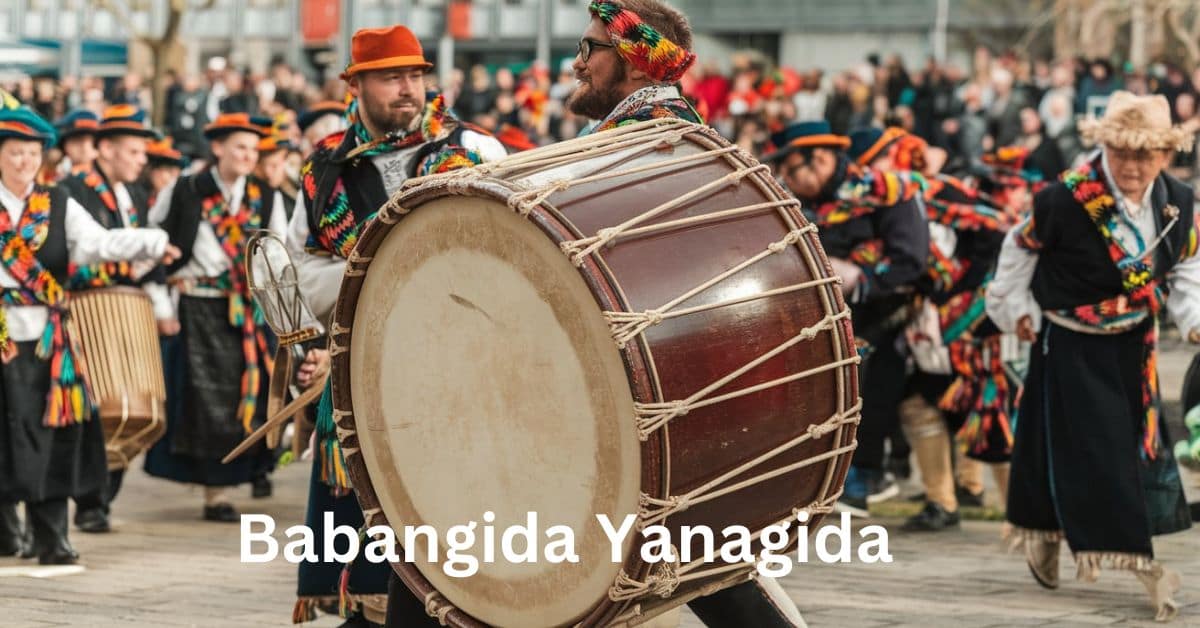Babangida Yanagida: A Spiritual and Cultural Exploration

In an ever-changing world where technology and modernity often overshadow tradition, there are still terms and concepts deeply rooted in cultural and spiritual beliefs that persist across generations. One such concept is “Babangida Yanagida.” Though relatively obscure in mainstream discourse, it carries significant spiritual and cultural connotations, particularly in certain regions and communities. This article will explore the meaning, cultural importance, and spiritual significance of “Babangida Yanagida,” while also shedding light on its relevance in modern times.
The term “Babangida Yanagida” may not be familiar to everyone, but for those who recognize it, it represents much more than just a phrase. It is believed to symbolize protection, guidance, and a connection to one’s ancestors. This article will delve into the origins, interpretations, and implications of “Babangida Yanagida,” while providing comprehensive insights that go beyond existing online sources.
Understanding the Term “Babangida Yanagida”
Etymology and Origins
The exact origins of the term “Babangida Yanagida” are somewhat obscure, with different interpretations and stories surrounding its usage. In some cultures, particularly in certain African and Asian communities, the term is believed to be a combination of names or titles associated with ancestral spirits and guardians.
- Babangida: This part of the term is often linked to African cultures, where “Babangida” could be interpreted as a powerful figure, possibly a leader or elder. The name may also be connected to a sense of authority or protection.
- Yanagida: The second part, “Yanagida,” is thought to have roots in Asian cultures, particularly Japanese, where it could be associated with nature or ancestral spirits. “Yanagida” could symbolize a place of rest or a spiritual entity that offers guidance and wisdom.
Together, “Babangida Yanagida” forms a phrase that encapsulates the idea of a protective, guiding force rooted in both African and Asian cultural contexts.
Spiritual Connotations
The phrase “Babangida Yanagida” carries deep spiritual meaning, particularly in communities where ancestral worship and the reverence of spiritual guides are integral parts of cultural identity. It is believed that invoking “Babangida Yanagida” can summon protection from malevolent forces and offer guidance through life’s challenges.
In many cultures, ancestors are viewed as guardians who continue to influence the living, providing wisdom and protection. “Babangida Yanagida” is seen as a symbolic representation of this belief, where the ancestors are not just remembered but actively engaged in the lives of their descendants.
Cultural Significance
In cultural contexts, the term “Babangida Yanagida” is often used in ceremonies, rituals, and traditional practices that aim to honor ancestors and seek their guidance. It may be invoked during important life events such as births, marriages, and deaths, where the presence of ancestral spirits is believed to be particularly strong.
For example, in some African communities, invoking “Babangida Yanagida” during a ceremony could be a way to call upon the ancestors for blessings, protection, and wisdom. Similarly, in certain Asian traditions, the term might be used in rituals that connect the living with the spiritual world, ensuring harmony and balance.
Modern Interpretations and Relevance
Adapting Tradition to Modern Times
As the world becomes more interconnected, the concept of “Babangida Yanagida” has also evolved, adapting to modern contexts while retaining its core spiritual significance. In contemporary settings, the phrase might be used metaphorically to represent the importance of cultural heritage and the need to stay connected to one’s roots.
For instance, in the diaspora, where individuals may be far removed from their ancestral lands, “Babangida Yanagida” could serve as a reminder of the importance of maintaining cultural traditions and honoring one’s heritage. It symbolizes a link to the past that helps individuals navigate the complexities of modern life.
Spirituality in the Digital Age
In the digital age, where information is readily accessible and cultures are constantly merging, the spiritual practices associated with “Babangida Yanagida” have also found new expressions. Online communities, social media, and virtual gatherings have become platforms for people to share and practice their spiritual beliefs, including the invocation of “Babangida Yanagida.”
The term may also be used in online discussions about spirituality, ancestral worship, and cultural identity, helping to bridge the gap between tradition and modernity. In this way, “Babangida Yanagida” continues to be relevant, offering a sense of continuity and connection in an increasingly fragmented world.
The Role of Ancestral Worship in Contemporary Society
Understanding Ancestral Worship
Ancestral worship is a practice found in many cultures around the world, where the spirits of the deceased are honored and revered as protectors and guides for the living. This practice is deeply embedded in the belief that the dead continue to play an active role in the lives of their descendants.
In the context of “Babangida Yanagida,” ancestral worship is central to its meaning. The term embodies the idea that the ancestors are not just passive memories but are actively engaged in providing protection, guidance, and wisdom.
The Benefits of Ancestral Worship
Ancestral worship, including the invocation of “Babangida Yanagida,” offers several benefits to individuals and communities:
- Cultural Continuity: Ancestral worship helps maintain cultural traditions and ensures that the wisdom and values of the past are passed down to future generations.
- Spiritual Protection: Many believe that ancestors can protect the living from harm, offering a sense of security and comfort in times of trouble.
- Guidance and Wisdom: Ancestral spirits are thought to provide guidance in making important life decisions, helping individuals navigate challenges with greater clarity and confidence.
- Community Bonding: Ancestral worship often involves communal rituals and ceremonies, fostering a sense of unity and shared identity among participants.
Ancestral Worship in the USA
While ancestral worship is more commonly associated with African, Asian, and Indigenous cultures, it has also found a place in the USA, particularly among immigrant communities and those who seek to reconnect with their cultural roots.
In the USA, ancestral worship practices may be adapted to fit the context of modern life, often blending traditional rituals with contemporary expressions of spirituality. For example, individuals might create altars in their homes, participate in online rituals, or gather in community centers to honor their ancestors.
The concept of “Babangida Yanagida” can resonate with people in the USA who are exploring their heritage or seeking to incorporate ancestral worship into their spiritual practices. It offers a way to connect with the past while navigating the complexities of modern life.
The Importance of Cultural Identity in a Globalized World
Defining Cultural Identity
Cultural identity refers to the sense of belonging to a particular culture or group, characterized by shared beliefs, values, traditions, and customs. It is an essential aspect of personal and collective identity, influencing how individuals perceive themselves and their place in the world.
In the context of “Babangida Yanagida,” cultural identity is closely linked to the practice of ancestral worship and the reverence for spiritual guides. The term embodies the idea that cultural identity is not just about the present but also about maintaining a connection to the past and the ancestors who have shaped the present.
Challenges to Cultural Identity in a Globalized World
Globalization has brought about significant changes in how cultures interact and evolve. While it has facilitated the exchange of ideas and the blending of cultures, it has also posed challenges to maintaining cultural identity.
Some of these challenges include:
- Cultural Assimilation: In a globalized world, there is often pressure to assimilate into dominant cultures, which can lead to the erosion of cultural traditions and identities.
- Loss of Traditions: As communities become more integrated into global systems, traditional practices and beliefs may be lost or forgotten, leading to a weakening of cultural identity.
- Cultural Appropriation: The commodification and appropriation of cultural symbols and practices by those outside the culture can dilute their significance and lead to misunderstandings.
Preserving Cultural Identity Through “Babangida Yanagida”
Despite these challenges, the concept of “Babangida Yanagida” offers a way to preserve and strengthen cultural identity in a globalized world. By invoking the wisdom and protection of ancestors, individuals can maintain a connection to their cultural roots and ensure that their traditions are passed down to future generations.
In the USA, where diverse cultures coexist, “Babangida Yanagida” can serve as a symbol of cultural resilience, offering a way to honor one’s heritage while embracing the opportunities of a globalized world. It reminds individuals that their cultural identity is not just about where they come from but also about the values and beliefs that guide their lives.
Practical Applications of “Babangida Yanagida” in Daily Life
Spiritual Practices
One of the most common ways to incorporate “Babangida Yanagida” into daily life is through spiritual practices that honor and invoke the presence of ancestors. These practices can take various forms, depending on cultural traditions and personal beliefs.
Some examples include:
- Daily Prayers: Individuals may start their day by offering prayers to their ancestors, asking for protection, guidance, and blessings.
- Altar Creation: Creating a small altar at home dedicated to one’s ancestors can serve as a focal point for spiritual practices. The altar might include photos, candles, incense, and other items that represent the ancestors.
- Rituals and Offerings: Performing rituals and making offerings to the ancestors can be a way to show respect and maintain a connection with them. This might involve lighting candles, offering food, or reciting specific prayers.
Cultural Celebrations
Incorporating “Babangida Yanagida” into cultural celebrations can also help keep the tradition alive and relevant. This might include:
- Ancestral Festivals: Participating in or organizing festivals that honor ancestors and celebrate cultural heritage. These events can bring communities together and reinforce the importance of ancestral worship.
- Family Gatherings: Using family gatherings as an opportunity to share stories about ancestors and pass down traditions to younger generations. This helps strengthen family bonds and ensure the continuity of cultural identity.
- Community Events: Engaging in community events that focus on cultural heritage and ancestral worship. These events can provide a platform for individuals to connect with others who share similar beliefs and practices.
Personal Reflection and Growth
Finally, “Babangida Yanagida” can be incorporated into personal reflection and growth. By reflecting on the wisdom and experiences of ancestors, individuals can gain insights into their own lives and make more informed decisions.
Some ways to do this include:
- Journaling: Keeping a journal where one reflects on the lessons learned from ancestors and how they can be applied to current challenges.
- Meditation: Practicing meditation with a focus on connecting with ancestors and seeking their guidance.
- Life Planning: Using the principles embodied in “Babangida Yanagida” to guide life planning and decision-making, ensuring that one’s actions align with the values and wisdom of their ancestors.
Related FAQs
What is the meaning of “Babangida Yanagida”?
“Babangida Yanagida” is a term that carries spiritual and cultural significance, symbolizing protection and guidance from ancestral spirits. It is often used in rituals and practices that honor ancestors and seek their wisdom.
Where does the term “Babangida Yanagida” come from?
The term “Babangida Yanagida” is believed to have roots in both African and Asian cultures. “Babangida” is associated with authority and protection in some African traditions, while “Yanagida” is linked to ancestral spirits in Asian cultures.
How is “Babangida Yanagida” used in spiritual practices?
“Babangida Yanagida” is often invoked during rituals, prayers, and ceremonies that honor ancestors. It is believed to offer protection, guidance, and blessings from the spiritual realm.
Is “Babangida Yanagida” relevant in modern times?
Yes, “Babangida Yanagida” remains relevant in modern times as it offers a way to stay connected to cultural heritage and ancestral wisdom. It can be adapted to contemporary spiritual practices and used as a symbol of cultural identity.
How can I incorporate “Babangida Yanagida” into my daily life?
You can incorporate “Babangida Yanagida” into your daily life through spiritual practices such as prayers, rituals, and altar creation. It can also be part of cultural celebrations, personal reflection, and growth.
Conclusion
“Babangida Yanagida” is more than just a phrase; it is a concept deeply rooted in cultural and spiritual traditions that have been passed down through generations. It represents a connection to the past, offering protection, guidance, and wisdom from the ancestors.
In a globalized world where cultural identity is constantly evolving, “Babangida Yanagida” serves as a reminder of the importance of staying connected to one’s roots. Whether through spiritual practices, cultural celebrations, or personal reflection, the concept offers a way to honor the past while navigating the present.
As we continue to explore and adapt our spiritual and cultural beliefs, “Babangida Yanagida” provides a powerful symbol of continuity, resilience, and identity. By embracing this concept, individuals can ensure that the wisdom of the ancestors continues to guide them, offering protection and guidance in an ever-changing world.










